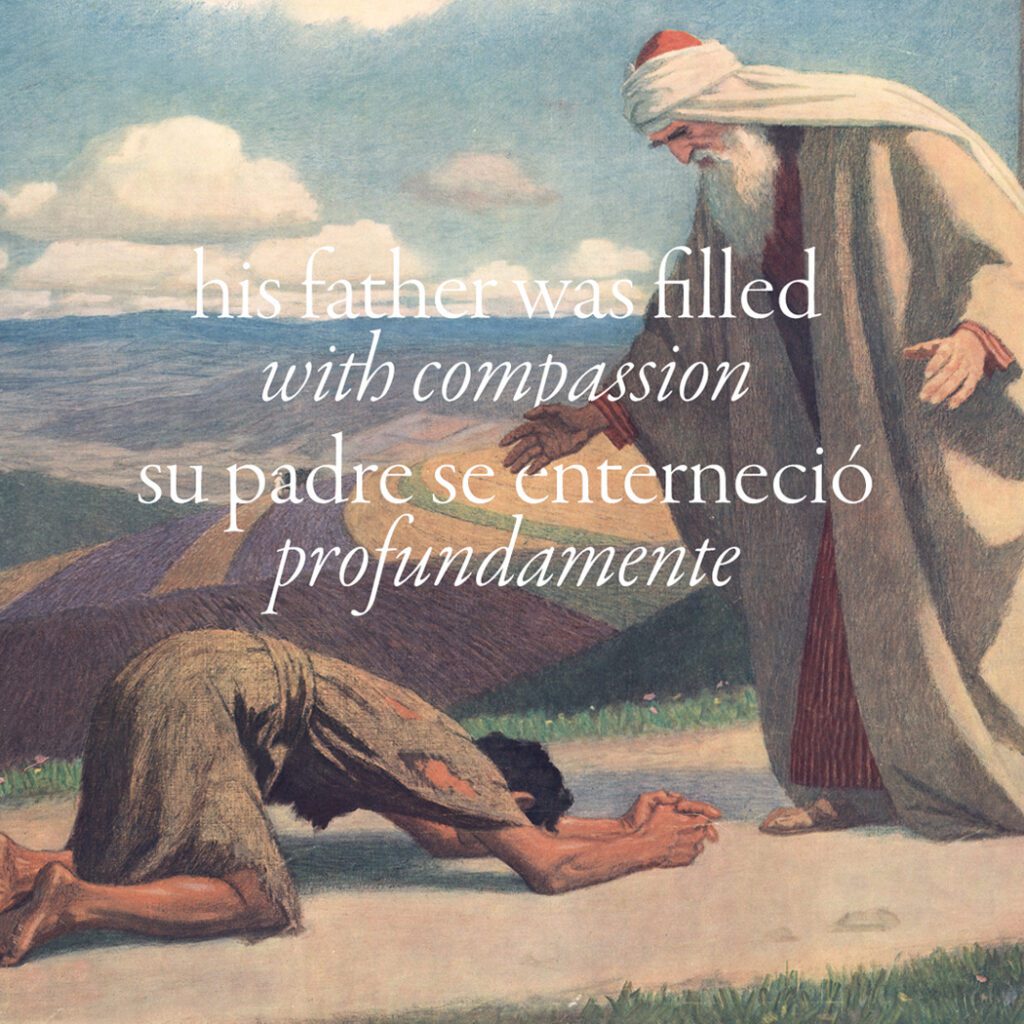Reflection by: Fr. Alberto Bueno, T.O.R.
Our Gospel this Sunday, Brothers and Sisters, is Jesus’ parable of the Prodigal Son. As Pope Francis has mentioned, “God always forgives. We are the ones who tire of asking for forgiveness, but he always forgives. The parable tells us that God is a Father who not only welcomes us back but rejoices and throws a feast for his son who has returned home after squandering all his possessions. We are that son, and it is moving to think about how much the Father always loves us and waits for us.” (Angelus, March 27, 2022)
This ever-forgiving Father is available to all his children. In the parable the elder son is as much in need of forgiveness as his younger brother. We can readily identify with the younger son, as we can see ourselves in him whenever we stray away from living as God’s son or daughter; but how often do we see ourselves in the elder son? Every time we judge others or resent them or look at someone with jaded or cynical eyes and condemn, we are that elder son. And our Father, through Christ, just as in the Parable, pleads with us; calls us to conversion. Self-righteousness is an awful sin! It is the sin of those Pharisees and scribes to whom this parable is addressed by Jesus. Let us pray, in the words of Saint Cyril of Alexandria: “God of love, who has given a new commandment through your only begotten Son that we should love one another even as you love us, and who gave your beloved Son for our life and salvation, we pray, O Lord, that you give to us, your servants, during our life on earth, a mind that forgets the past ill will, a pure conscience, sincere thoughts, and a heart to love our brothers and sisters. Amen.”
Nuestro evangelio de este domingo, hermanos y hermanas es la parábola del Hijo Pródigo. Como ha dicho el Papa Francisco, “Dios perdona siempre, somos nosotros los que nos cansamos de pedir perdón, pero Él perdona siempre. Nos dice que Dios es Padre, que no solo acoge de nuevo, sino que se alegra y hace fiesta por su hijo, que ha vuelto a cas después de haber derrochado todos sus bienes. Nosotros somos ese hijo, y conmueve pensar en cuánto nos ama y espera siempre el Padre.” (Ángelus, 27 marzo 2022)
Este Padre siempre perdonador está disponible para todos sus hijos. En la parábola, el hijo mayor necesita perdón tanto como su hermano menor. Podemos identificarnos fácilmente con el hijo menor, ya que podemos vernos en él cada vez que nos alejamos de vivir como hijo o hija de Dios; pero ¿con qué frecuencia nos vemos en el hijo mayor? Cada vez que juzgamos a otros, les guardamos resentimiento, o miramos a alguien con ojos hastiados o cínicos y condenamos, somos ese hijo mayor. Y nuestro Padre, por medio de Cristo, como en la parábola, nos suplica; nos llama a la conversión. ¡La autocomplacencia es un pecado terrible! Es el pecado de aquellos fariseos y escribas a quienes Jesús dirige esta parábola. Oremos en las palabras de San Cirilo de Alejandría: “Dios de amor, que nos has dado un mandamiento nuevo por medio de tu Hijo Unigénito, para que nos amemos unos a otros como tú nos amas, y que diste a tu Hijo amado para nuestra vida y salvación, te rogamos, Señor, que nos des a nosotros, tus siervos, durante nuestra vida en la tierra, una mente que olvide la mala voluntad pasada, una conciencia pura, pensamientos sinceros y un corazón para amar a nuestros hermanos y hermanas. Amén.”





